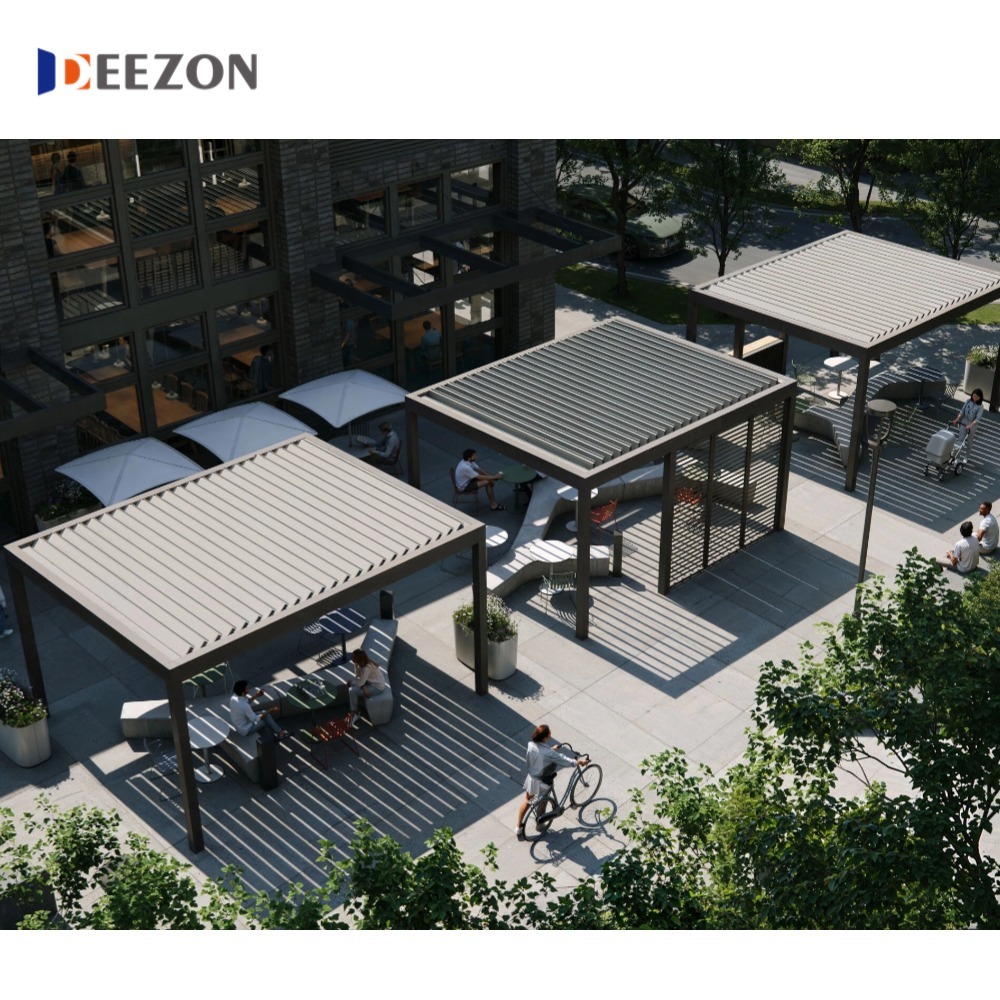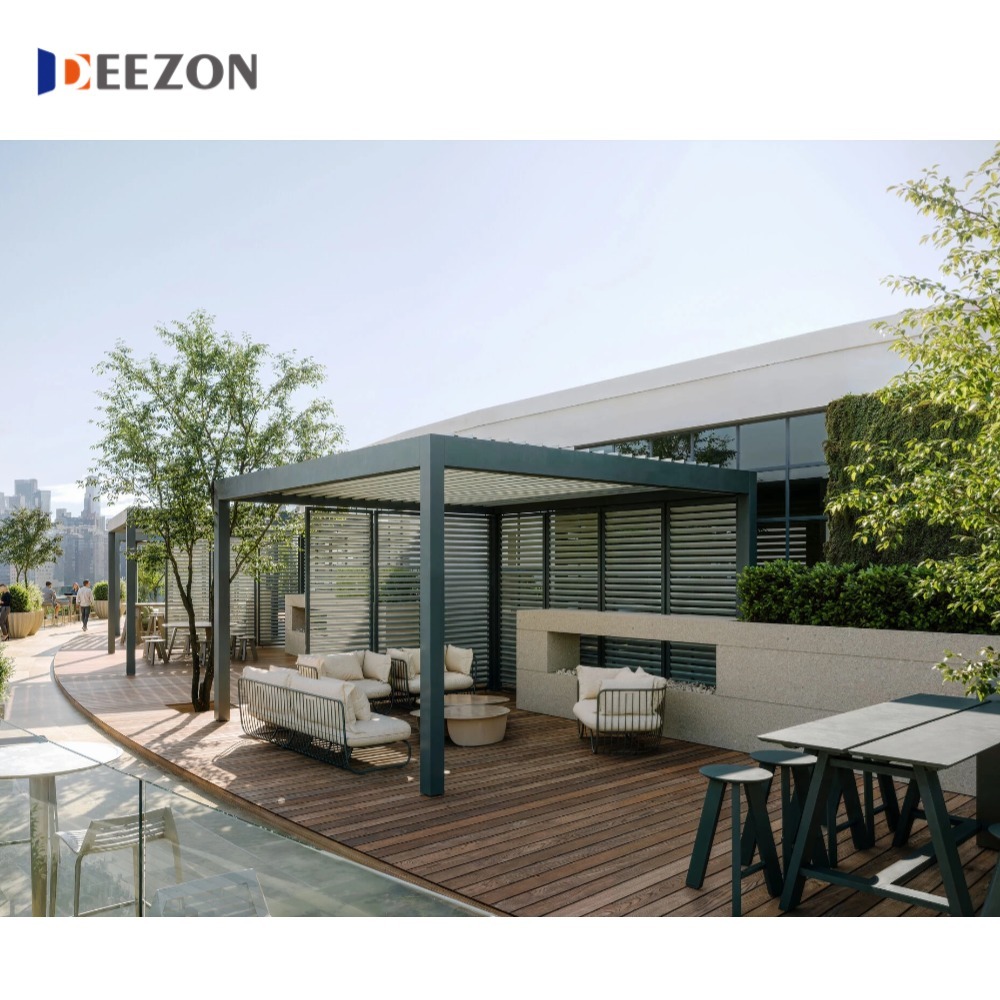Foshan Deezon Windows and Doors Co.,Ltd.
language
Creating a Sustainable Garden: The Essential Role of Aluminum Glass Greenhouses
Aug 06,2025

Creating a Sustainable Garden: The Essential Role of Aluminum Glass Greenhouses
Table of Contents
- Introduction to Sustainable Gardening
- What is an Aluminum Glass Greenhouse?
- Benefits of Aluminum Glass Greenhouses
- Energy Efficiency and Thermal Regulation
- Durability and Longevity
- Aesthetic Appeal and Design Flexibility
- Designing Your Aluminum Glass Greenhouse
- Sustainable Practices in Your Greenhouse
- Challenges and Solutions in Greenhouse Gardening
- Real-Life Success Stories
- FAQs about Aluminum Glass Greenhouses
- Conclusion
Introduction to Sustainable Gardening
In an era where environmental concerns are paramount, sustainable gardening has emerged as a practical solution for individuals looking to make a positive impact. Sustainable gardening focuses on creating a balanced ecosystem that not only produces food but also preserves natural resources. By utilizing innovative structures like aluminum glass greenhouses, gardeners can optimize plant growth while minimizing environmental impact. This article explores how these greenhouses play a vital role in establishing sustainable gardens.
What is an Aluminum Glass Greenhouse?
Aluminum glass greenhouses are structures primarily made of aluminum frames and glass panels designed to provide an ideal growing environment for plants. They trap sunlight and maintain optimal temperature and humidity levels, allowing gardeners to grow a variety of plants year-round. These greenhouses are not only functional but also stylish, blending seamlessly into any landscape.
Benefits of Aluminum Glass Greenhouses
Aluminum glass greenhouses offer numerous advantages that make them an excellent choice for sustainable gardening.
Energy Efficiency and Thermal Regulation
One of the primary benefits of aluminum glass greenhouses is their ability to regulate temperature. The glass panels allow sunlight to enter while minimizing heat loss, creating a stable internal environment. This energy efficiency translates into lower heating costs, making them economically viable.
Durability and Longevity
Aluminum is renowned for its corrosion resistance and strength, making aluminum glass greenhouses long-lasting investments. Unlike traditional wooden structures, aluminum frames do not rot or warp, ensuring that your greenhouse remains functional for many years. This durability contributes to a more sustainable gardening practice, as fewer resources are needed for replacements.
Aesthetic Appeal and Design Flexibility
Aluminum glass greenhouses come in various designs and sizes, catering to individual aesthetic preferences and space requirements. Their modern appearance enhances any garden landscape, making them a beautiful addition to your property. Additionally, customization options allow gardeners to create spaces that suit their specific needs.
Designing Your Aluminum Glass Greenhouse
The design of your aluminum glass greenhouse is crucial for maximizing its efficiency and effectiveness.
Location Selection and Orientation
Choosing the right location for your greenhouse is essential. Ideally, it should receive ample sunlight throughout the day. Orienting the greenhouse north to south can help maximize light exposure, ensuring that your plants thrive.
Optimal Size and Layout
The size of your greenhouse should align with your gardening goals. Whether you're cultivating herbs, vegetables, or ornamental plants, it's important to have enough space for growth and accessibility. Consider incorporating shelving or vertical gardening techniques to optimize space.
Ventilation and Irrigation Systems
Proper ventilation is crucial for temperature control and humidity management. Incorporating roof vents, louvered side vents, and exhaust fans can help maintain a healthy environment for your plants. Additionally, consider an efficient irrigation system, such as drip irrigation, to conserve water and ensure that your plants receive consistent moisture.
Sustainable Practices in Your Greenhouse
Integrating sustainable practices into your greenhouse management can further enhance its ecological benefits.
Soil Health Management
Healthy soil is the foundation of a sustainable garden. Regularly amend your soil with organic matter, such as compost, to improve its nutrient content and structure. This not only promotes plant health but also minimizes the need for chemical fertilizers.
Composting and Organic Fertilizers
Creating a composting system within your greenhouse can reduce waste and provide nutrient-rich material for your plants. Use kitchen scraps, garden waste, and other organic materials to create a compost pile or bin. Additionally, consider using organic fertilizers to nourish your plants sustainably.
Water Conservation Techniques
Water scarcity is a growing concern in many regions. Implementing water-efficient practices, such as rainwater harvesting, can significantly reduce your greenhouse's water consumption. Collecting rainwater from the roof and using it for irrigation can help conserve this vital resource.
Challenges and Solutions in Greenhouse Gardening
While gardening in an aluminum glass greenhouse offers numerous benefits, it also presents some challenges.
One common issue is overheating during the summer months. To counter this, ensure proper ventilation and consider installing shading systems, such as shade cloths, to protect your plants from excessive heat.
Pest management is another challenge. Integrated pest management (IPM) strategies, including beneficial insects and organic pesticides, can help keep your greenhouse free of pests without harming the environment.
Real-Life Success Stories
Many gardeners have successfully transformed their gardening practices through the use of aluminum glass greenhouses. For instance, a community garden in an urban area utilized these structures to provide fresh produce to local residents, promoting food security and community engagement. Their success story showcases the potential of greenhouses to enhance sustainability and foster community connections.
FAQs about Aluminum Glass Greenhouses
1. What are the primary advantages of aluminum glass greenhouses?
Aluminum glass greenhouses offer energy efficiency, durability, and aesthetic appeal. They provide a controlled environment that maximizes plant growth while requiring minimal maintenance.
2. How do I choose the right size for my greenhouse?
Choose a size based on your gardening goals and available space. Consider factors such as the types of plants you want to grow and how much room you need for walking and maintenance.
3. Can I use my greenhouse year-round?
Yes, aluminum glass greenhouses are designed for year-round use. They provide insulation and thermal regulation, allowing you to grow plants in various climates.
4. What kind of ventilation system should I install?
Incorporate a combination of roof vents, side vents, and exhaust fans to facilitate proper airflow and temperature control.
5. How can I manage pests in my greenhouse sustainably?
Employ integrated pest management strategies, such as introducing beneficial insects, using organic pesticides, and regularly monitoring plants for signs of pests.
Conclusion
Incorporating an aluminum glass greenhouse into your gardening journey is a transformative step towards creating a sustainable garden. With their energy efficiency, durability, and design flexibility, these structures offer an unparalleled environment for plant cultivation. By embracing sustainable practices, gardeners can not only enhance their own spaces but also contribute positively to the environment. With careful planning and dedication, your aluminum glass greenhouse can become a thriving hub of biodiversity and productivity, paving the way for a greener future.
PREVIOUS:







